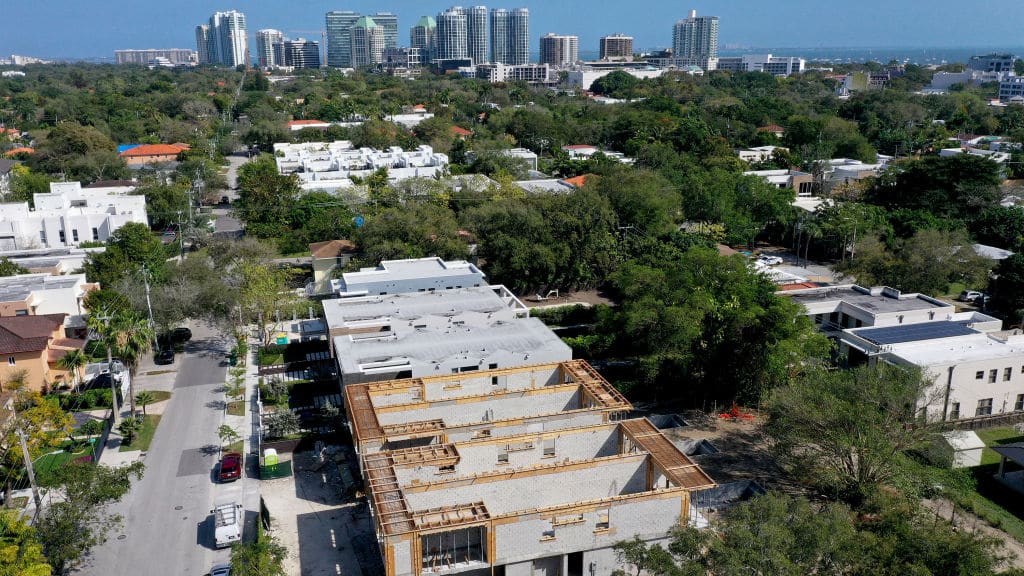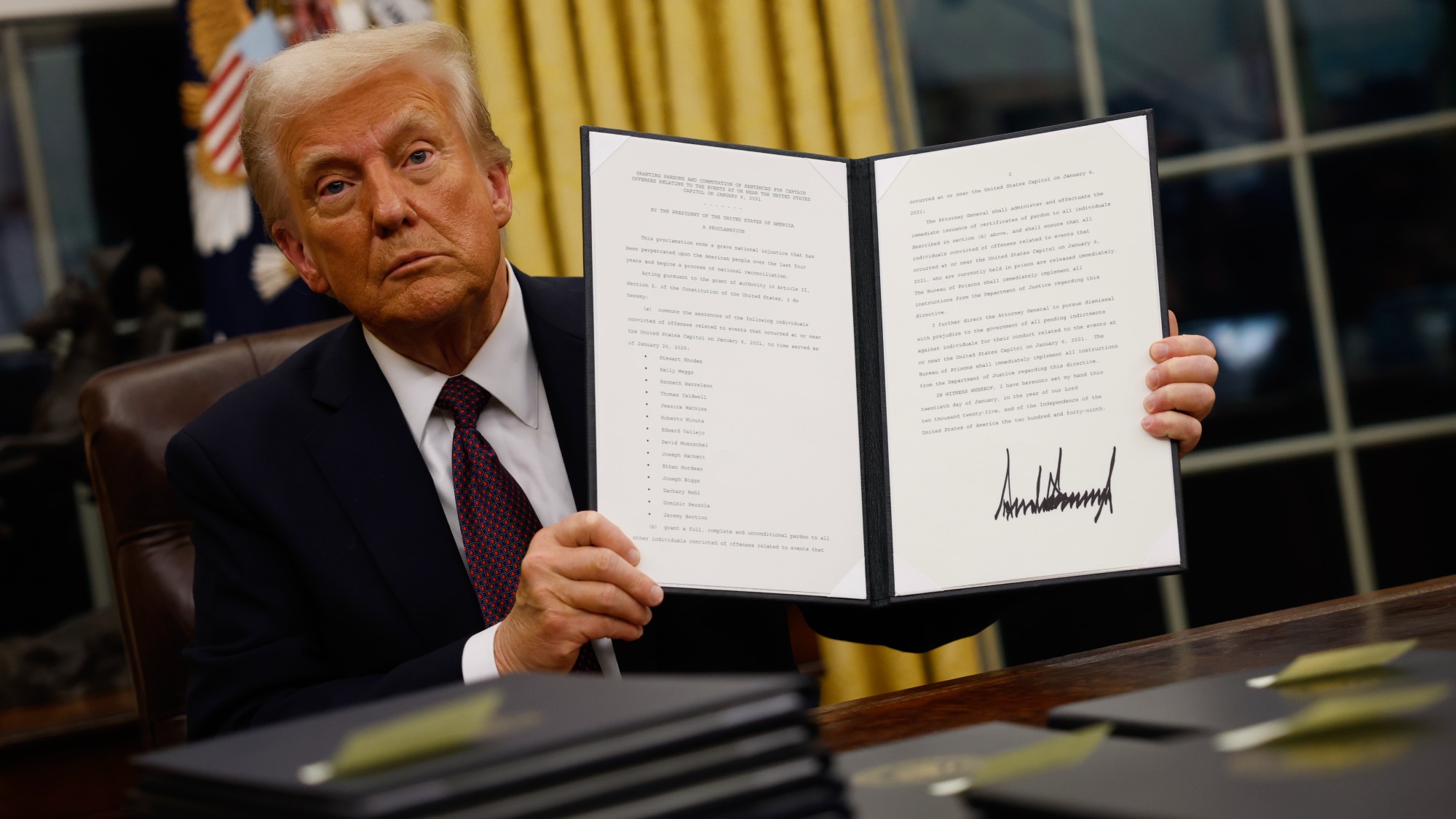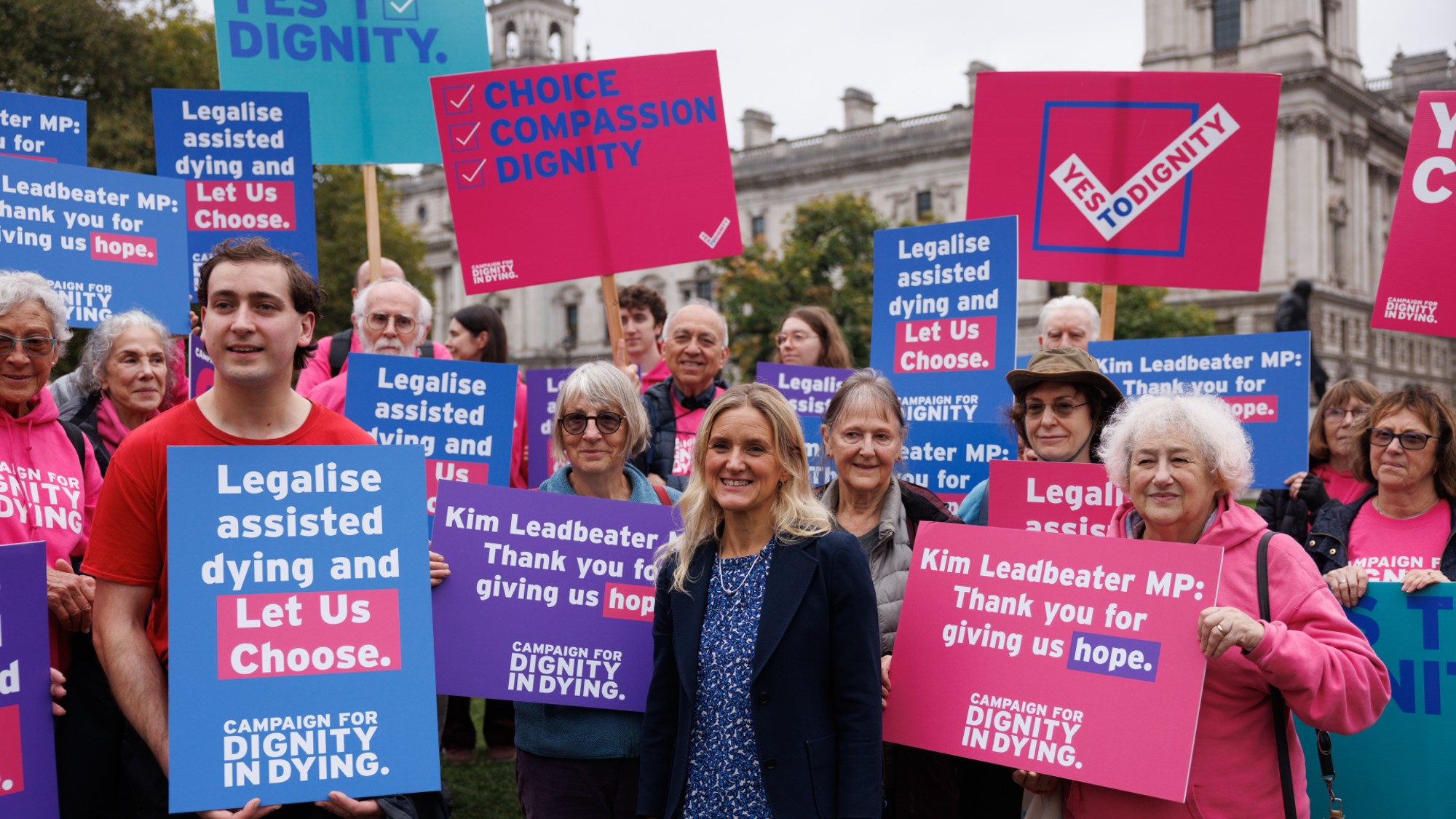Florida construction and agricultural workforces diminished after new immigration law takes effect


A free daily email with the biggest news stories of the day – and the best features from TheWeek.com
You are now subscribed
Your newsletter sign-up was successful
A new law that took effect in Florida on July 1 is already hitting the state's agricultural and construction industries hard.
The law, signed by Gov. Ron DeSantis (R) in May, makes it a third-degree felony for people to use a false identification to get hired for work. Any business that is found to knowingly employ those unauthorized workers could have its license revoked and face daily fines. Additionally, hospitals that accept Medicaid are now required to question a patient's immigration status, driver's licenses given to undocumented immigrants in other states are invalid, and it's a third-degree felony to knowingly transport undocumented immigrants into the state.
An estimated 772,00 undocumented immigrants lived in Florida in 2019, with many working on construction sites, farms and packaging facilities. Migrant workers began leaving the state once DeSantis signed the new law in May, The Wall Street Journal reported, including those who are authorized to work but are married to someone who isn't. A spokesperson for DeSantis defended the law, saying that businesses that hire undocumented immigrants "instead of Floridians will be held accountable."
The Week
Escape your echo chamber. Get the facts behind the news, plus analysis from multiple perspectives.

Sign up for The Week's Free Newsletters
From our morning news briefing to a weekly Good News Newsletter, get the best of The Week delivered directly to your inbox.
From our morning news briefing to a weekly Good News Newsletter, get the best of The Week delivered directly to your inbox.
At multiple construction sites in Miami, workers shared with the Journal that they have lost about half of their crews; one man said he knows people who went to Indiana, where they could make $38 an hour instead of $25 and not have to worry about running afoul of the immigration law. Tom C. Murphy, co-president of Coastal Construction, told the Journal there was already a labor shortage before the law went into effect, and while "we fully support documentation of the immigrant workforce, the new law is aggravating an already trying situation."
Immigration is usually a federal area of law, immigration lawyer Daniela Barshel told the Journal, and it will be difficult to give guidance to clients when there are differing state and federal rules. "It's kind of extreme that Florida passed a law like this," she said. Companies cannot be advised to stop hiring noncitizens, since that could be discrimination on the basis of race or national origin, leaving businesses with no easy path forward. "You don't want to be fined by the government, and you also don't want to be sued by someone because they were authorized to work and you didn't hire them," Barshel said.
A free daily email with the biggest news stories of the day – and the best features from TheWeek.com
Catherine Garcia has worked as a senior writer at The Week since 2014. Her writing and reporting have appeared in Entertainment Weekly, The New York Times, Wirecutter, NBC News and "The Book of Jezebel," among others. She's a graduate of the University of Redlands and the Columbia University Graduate School of Journalism.
-
 Trump vs. BBC: what’s at stake?
Trump vs. BBC: what’s at stake?The Explainer The US president has filed a $10 billion lawsuit over the editing of Panorama documentary, with the broadcaster vowing to defend itself
-
 The Supreme Court case that could forge a new path to sue the FBI
The Supreme Court case that could forge a new path to sue the FBIThe Explainer The case arose after the FBI admitted to raiding the wrong house in 2017
-
 Birthright citizenship under threat in US
Birthright citizenship under threat in USThe Explainer Donald Trump wants to scrap the policy he calls a 'magnet for illegal immigration'
-
 ABC News to pay $15M in Trump defamation suit
ABC News to pay $15M in Trump defamation suitSpeed Read The lawsuit stemmed from George Stephanopoulos' on-air assertion that Trump was found liable for raping writer E. Jean Carroll
-
 Judge blocks Louisiana 10 Commandments law
Judge blocks Louisiana 10 Commandments lawSpeed Read U.S. District Judge John deGravelles ruled that a law ordering schools to display the Ten Commandments in classrooms was unconstitutional
-
 How would assisted dying work in the UK?
How would assisted dying work in the UK?The Explainer Proposed law would apply to patients in England and Wales with less than six months to live – but medics may be able to opt out
-
 Assisted dying: will the law change?
Assisted dying: will the law change?Talking Point Historic legislation likely to pass but critics warn it must include safeguards against abuse
-
 The EU's landmark AI Act 'rushed' out as countdown begins on compliance
The EU's landmark AI Act 'rushed' out as countdown begins on complianceThe Explainer 'We will be hiring lawyers while the rest of the world is hiring coders' – Europe's warning about new AI legislation



